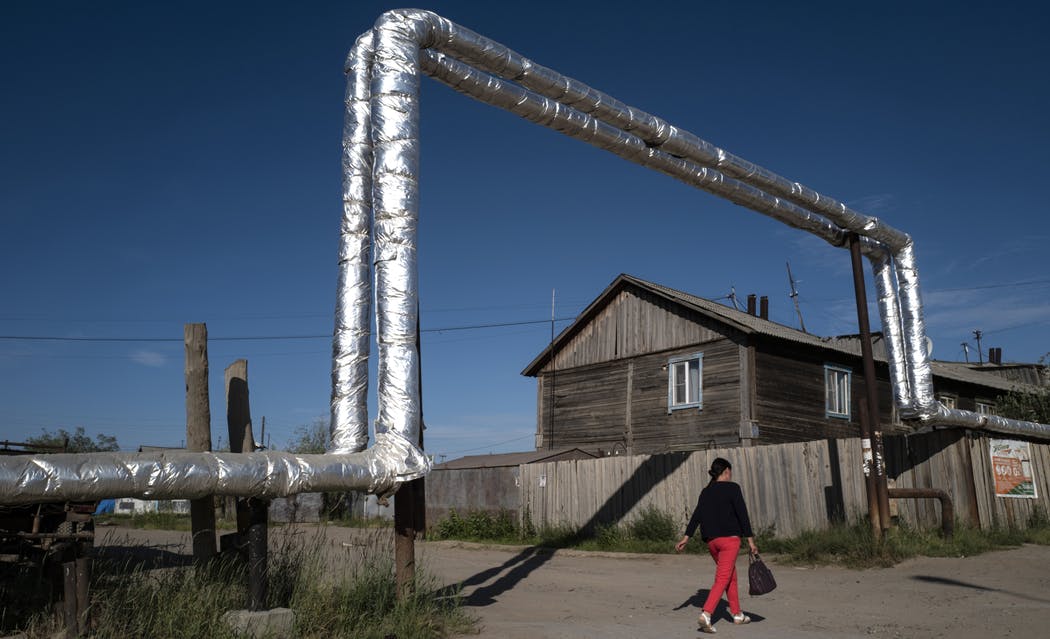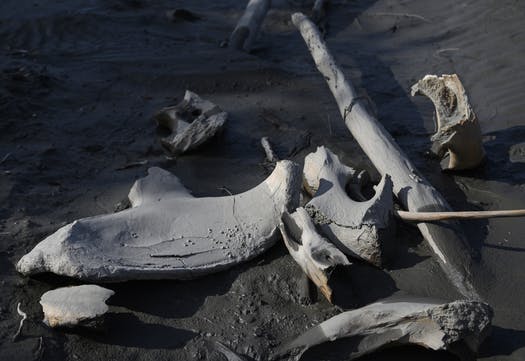| SCIENCE 5 In fast-thawing Siberia, radical climate change is warping the Earth beneath the feet of millions NOVEMBER 2, 2019 — 11:05PM |
Scientists say the planet’s warming must not exceed 2.7 degrees Fahrenheit — but Siberia’s temperatures have already spiked far beyond that. And a Washington Post analysis found that the region near the town of Zyryanka, in an enormous wedge of eastern Siberia called Yakutia, has warmed by more than 5.4 degrees Fahrenheit since preindustrial times — roughly triple the global average.
For the 5.4 million people who live in Russia’s permafrost zone, the new climate has disrupted their homes and their livelihoods. Rivers are rising and running faster, and entire neighborhoods are falling into them. Buildings, pipelines and other infrastructure are at risk.
The economic loss is $780.5 million to $2.3 billion a year, said Alexander Krutikov, deputy minister for the Far East and Arctic development. “This problem needs to be addressed, because the amount of damage will grow every year,” Krutikov said. “The scale is very serious. The pipes explode, the piles collapse.”
His comments are another sign that Russia, the world’s fourth-biggest emitter, is taking the effects of climate change more seriously. President Vladimir Putin has challenged the widely held assertion that global warming is due almost exclusively to human activity. Still, he decided to ratify the 2015 Paris climate accord this year and said Russia must do whatever it can to mitigate the impact of global warming.
It’s a particular worry for mining, oil and gas companies. The permafrost area accounts for 15% of Russia’s oil and 80% of its gas operations. It is also home to miners including Norilsk Nickel (Nornickel), the biggest refined nickel and palladium producer.
| Russia has long built structures on piles to improve stability. But as the ground warms it becomes softer, and there are signs problems are increasing. “Buildings lost stability as the permafrost warmed,” Nornickel said. That prompted the Arctic city to build the first new homes in decades, with fewer floors and weighing less. New craters have also been found in the gas-rich Yamal region, which is a risk to pipelines, and some houses have had to be pulled down in Norilsk, the industrial town where Nornickel operates. |
Then there’s that smell. As the permafrost thaws, animals and plants frozen for thousands of years are decomposing and sending carbon dioxide and other gases into the atmosphere — accelerating climate change.
“The permafrost is thawing so fast,” said Anna Liljedahl, an associate professor at the University of Alaska in Fairbanks. “We scientists can’t keep up anymore.”
The impact on farming has been catastrophic. The permafrost that sustained farming — and upon which villages and cities are built — is now blanketing the region with swamps, lakes and odd bubbles of earth. Scientists say the degradation of land helped bring about the collapse of the region’s agriculture.
“The earth is slowly sinking,” horse farmer Vladimir Arkhipov said. “There’s more and more water and less and less usable earth.”
The economic consequences may get much worse. By 2050, warming may affect about a fifth of the area’s structures and infrastructure, costing $84 billion, research said. That would be equal to about 7.5% of Russia’s gross domestic product. More than half of residential real estate, worth about $53 billion, might be also damaged.
Companies are planning ahead. Gas producer Novatek PJSC is designing new infrastructure to cope with warming, billionaire owner Leonid Mikhelson said. As well as driving piles deeper, it’s using technology to help keep the ground frozen.
The city of Norilsk has put about a quarter of homes on watch over their stability, the Taymirskiy Telegraph said. Diamond miner Alrosa PJSC is monitoring ground temperatures and has a special department to supervise the permafrost, a spokeswoman said.
“Studying the permafrost is one of the most unfairly forgotten tasks and priorities of the state,” Krutikov said. “It directly affects economic development.”
Alexander Fedorov, deputy director of the Melnikov Permafrost Institute, agreed. “The warming got in the way of our good life,” he said. “With every year, things are getting worse and worse.”
The Washington Post contributed to this report.




 RSS Feed
RSS Feed